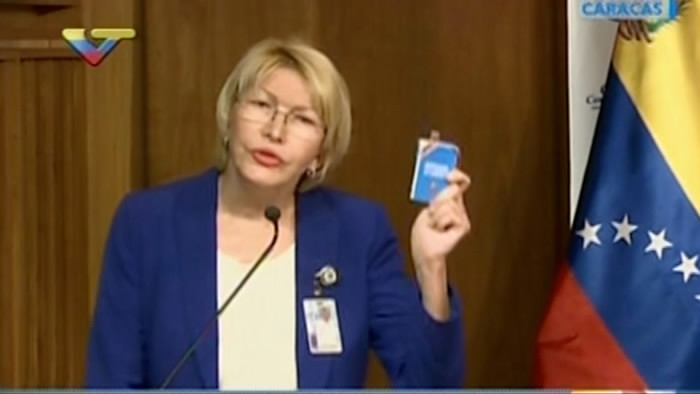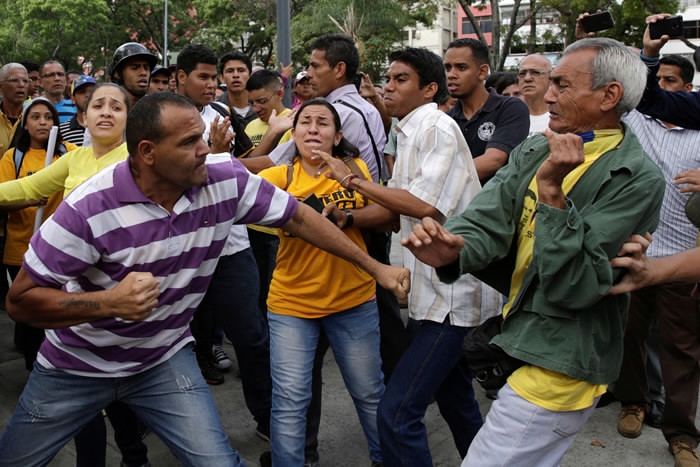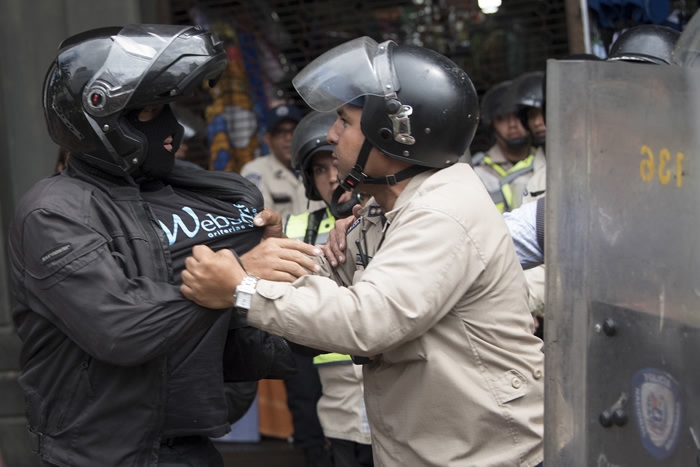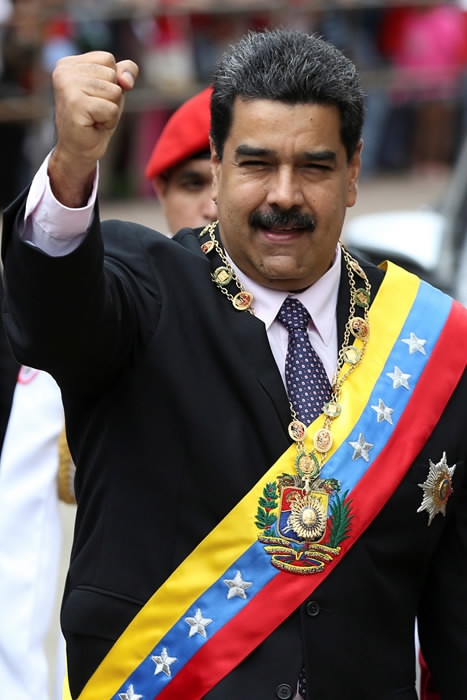Venezuelan President Nicolas Maduro faced the strongest criticism ever from within his own camp Friday as his attorney general condemned recent court rulings that consolidated the socialist president's power.
Meanwhile, street protests erupted for a second day on Friday in Caracas. Two students and a journalist were arrested, activists said.
Attorney General Luisa Ortega broke ranks with the president live on state TV to denounce two Supreme Court rulings this week that effectively dissolved the opposition-majority legislature and revoked lawmakers' immunity from prosecution.

Screen grab from state-owned VTV television broadcast of Venezuela's attorney general Luisa Ortega speaking during the release of her 2016 annual report in Caracas, Venezuela on March 31, 2017. /CFP Photo
Ortega is seen as staunchly loyal to the socialist "revolution" launched in Venezuela by Maduro's mentor Hugo Chavez in 1999. But with Venezuela – once a booming oil producer, now mired in food shortages, political chaos and an epidemic of violent crime – Ortega fired off the most severe public criticism yet from a high-ranking "Chavista" official.
The Supreme Court rulings are a "rupture of constitutional order," she said at an event to mark the release of her 2016 annual report. It was a shocking departure from script for Venezuelan state TV, where the programming is strictly pro-government and Maduro often delivers long speeches or shows off his salsa dancing.
"It is my duty to inform my country of my deep concern over these events," said Ortega, drawing a long salvo of applause from the crowd. She delivered her remarks while brandishing a copy of what she referred to as "Chavez's constitution," adopted the year the late leftist firebrand came to power.

Pro-government supporters clash with opposition supporters during a protest against Venezuelan President Nicolas Maduro's government in Caracas, Venezuela on March 31, 2017. /CFP Photo
The criticism came two days after the Supreme Court, which has staunchly backed Maduro through an economic and political crisis, assumed the powers of the National Assembly.
Having already shot down most of the National Assembly's measures since the opposition won control in 2015, the pro-Maduro court this week said it was assuming the legislature's functions because it was in "contempt" of the law.
The legislature was the only pillar of power in Venezuela that was not under the control of the president and his allies.
On Friday, students marched on the Supreme Court, where they scuffled with soldiers. Protesters also blocked streets in the working-class Petare neighborhood, and opposition lawmakers clashed with Maduro supporters downtown.
The legislative speaker, Julio Borges, called on the military and other institutions to follow Ortega's example and speak up against Maduro. "Now is the time to obey the orders of your conscience," he said.

A Venezuelan pro-government supporter scuffles with police personnel in riot gear during a protest in front of the Supreme Court in Caracas, Venezuela on March 31, 2017. /CFP Photo
International condemnation continued pouring in, adding to the criticism already voiced by the United States, the European Union, Spain, Germany and a host of Latin American countries. Colombia recalled its ambassador to Venezuela, joining Chile and Peru.
On Friday, the six members of the Union of South American Nations in a statement called "for the swift restoration of democratic order in the country for the good of the whole Venezuelan people."
Many have said the Supreme Court's move amounts to a coup.
Maduro denies constitutional breach
Venezuela rejected that accusation Friday, lashing out at its critics as "imperialists."
Maduro rejected accusations that moves to consolidate his power in the crisis-hit country had violated the constitution. "In Venezuela, the constitution, civil, political and human rights and people power are in full force," Maduro said in a speech to cheering supporters.

Venezuelan President Nicolas Maduro. /CFP Photo
Maduro came to power with around 50 percent popularity ratings but has seen that halved as Venezuelans struggle with a fourth year of recession, scarcities of basic food and medicines and the highest inflation in the world.
The fall in oil prices since mid-2014 has exacerbated the crisis.
The government says foes are carrying out an "economic war" against Maduro.
(Source: AFP, Reuters)









